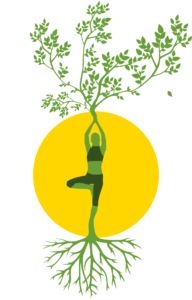The buzzword ‘resilience’ has made it frequently to the headlines ever since the COVID-19 pandemic. From applauding healthcare workers pulling double shifts to businesses deriving a hybrid work model, we have all learned to be resilient in one way or another, during those turbulent times.
But if I ask you at this moment to define resilience in simple words, what would you say?
I would like to quote Dr. Jessica, a psychologist, and global clinical DEI manager at Modern Health here; “People need to understand that being resilient means you are experiencing something at a high-stress level, and we are not meant to function at such a level for an extended period of time.”
An important conclusion from this apt explanation is that resilience is not necessarily hard – although it might be synonymous with it (at Synonyms.com). Resilience can be about rest, too. About vulnerability and sensitivity in other instances, such that it gets easier to navigate stressful situations.
Here’s how you can become resilient to cruise through negative situations in your life, and ultimately get your share of happiness.
Do a check-in on yourself before anyone else
We’re always told the human etiquette is to inquire “how are you” to anyone who’s an associate. But when was the last time that you asked the same question to yourself?
A rule of thumb is to build mental strength first before you can build resilience. Burnout can creep in at any time and age. It’s easy to operate on autopilot until you’re on the verge of break down. Just like a car with an oil leak. You may not notice the oil leaking until you park the car for a while and then move it to see the puddle underneath.
For that purpose, do a five-minute check-in every day. Ask yourself important questions like, “How do I feel?” “What do I need today” or “How do I want today to go?”
You can answer these questions in silence or write them in a diary. Processing and digesting negative thoughts help you carry out a self-care activity, such as going for a run or ordering a take-out.
Set boundaries and prioritize your needs
Boundaries and restrictions are not necessarily about people only. We’re told to shrink our circle to support ourselves and those who actually need it – but that’s not resilience.
On your journey towards mental strength and happiness, learn to prioritize your need. For example, if you have outing plans with friends but you feel like staying in and taking a rest, you shouldn’t feel bad about rescheduling.
According to Dr. Jackson, you must not feel intimidated or uncomfortable sharing your feelings. Importantly, you should also not feel guilty when you’re saying ‘no’ to certain plans or situations because by doing so, you’re actually not wasting your ‘finite energy’ on things that can be, or potentially be, bad for your mental health.
Perform a technology audit
Guess what kills our happy thoughts as easily as the birthday cake’s knife? Social media. Brimming, or in fact boiling with unrealistic standards of nearly all abstracts – from happiness to beauty to luxury, studies link social media with depression and anxiety in teenagers and young adult. The undeniable connection is a major factor in undermining our well-being and emotional resilience.
I believe quitting social media is easier said than done. The withdrawal, however, can be gradual and like a process of detoxification.
This calls for a technology audit. Limit social time to two hours a day, and exclude any page, community, group, or even online friend from your daily consumption that doesn’t add some level of joy to your day. If anything makes you feel bad, insecure, or simply uncomfortable; mute it.
Foster “micro-moments” of happiness
Ever wondered why our heart races so easily at the slightest hint of ‘danger’? That’s because our brains are hard-wired to respond to stressful situations almost instantly; the adrenaline rush as it is called. We’re not as tuned to release happy hormones as rapidly – it takes some amount of substantial trigger to get the dopamine rush.
Since we’re wired to give weight to negative emotions over positive ones, the antidote to this bad habit is to seek “micro-moments” of positivity. In essence, a meaningful connection to a certain friend or family, or an uplifting activity or hobby should be used to act as a buffer between us and the stress that we shall inevitably encounter in life. Once you have found these moments, think about how you incorporate them into your daily routine.
Be proactive, hopeful, and happy
Resilience and happiness are intertwined with each other. One can build resilience by working on their coping mechanisms and skills. Once you master the art of coping with stuff your way, you’ll see how you’ll become resilient to things. Your mind is specific to you. Only you know how to play with it and how to lead it. Once you’ve got control of your mind, it can do you wonders.
When you’re encountering challenging times in life, learn to break down these challenges or problems into smaller bits. This will make the problem seem less of a big deal. If your brain perceives the challenge as an easy target, it will process the solution with less effort, and consequently, the stress and anxiety will diminish.
Besides integrating emotional resilience activities, the key to actually achieving happiness is learning from past mistakes, remaining hopeful for the future, and being proactive in your personal matters. When faced with a traumatic setback or loss, believe that your situation can improve and plan to work it out.





